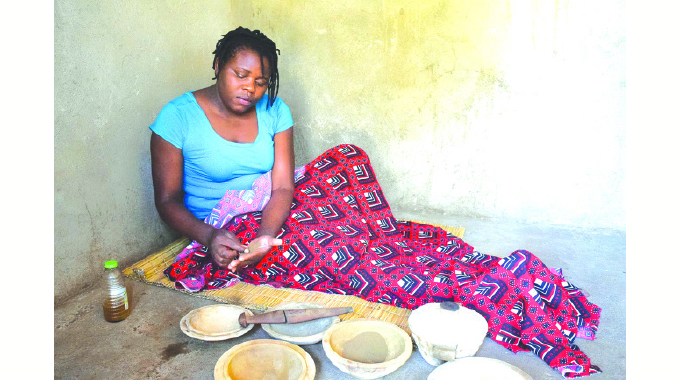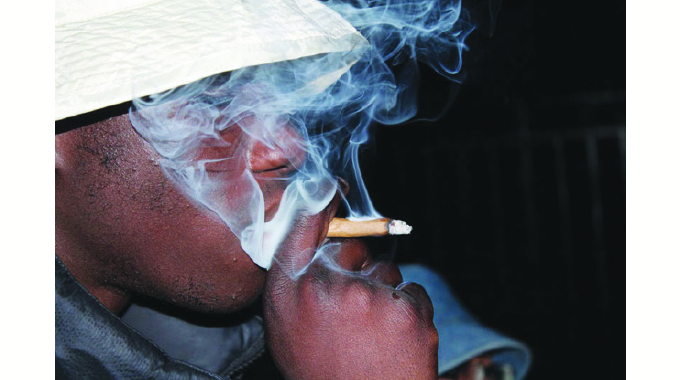Zimbabweans in UK refuse to abandon beliefs

Dr Masimba Mavaza
Zimbabweans in the United Kingdom have refused to abandon their beliefs in witchcraft, lucky charms and in superstitions. They have carried their beliefs in the UK and created a world of superstitions.
Many a times, the superstitious mood is manifested in two faces which is Christianity and traditional beliefs. Either way there is a strong belief in the unknown to bless reward or conquer the unseen.
At the dawn of the third millennium, a belief in the reality and efficacy of witchcraft and magic is supposed to be no longer an integral component of mainstream Western culture, but the industrious Zimbabweans have managed to reintroduce it in the UK.
When misfortune strikes at us, our family or a close neighbour, we do not automatically seek to locate the source of all our ills and ailments in the operation of occult forces, nor scour the local community for the elderly woman who maliciously harnessed them and so bewitched us.
A witch doctor was originally a type of healer who treated ailments believed to be caused by witchcraft.
The term witch doctor is sometimes used to refer to healers, particularly in regions which use traditional healing rather than contemporary medicine.
Most of the Zimbabweans in the UK have kept courier companies busy with stones and holy waters being sent back and forth. Envelopes loaded with lucky charms and traditional snuff to alleviate the problems and boosting lucky for the Zimbos in the UK.
Do people have powers to change things as they are using the unseen spirit?
Nor do we believe that knowledge, love or power can be ours for the taking if only we employ the correct rites, charms or incantations to bring them within our grasp. Despite the interest in the modern pagan movement, the figures of the witch and the magician are supposed to be conspicuously absent from the national stage and remain, for most people at least, simply the stuff of storybooks, firmly relegated in the popular consciousness to the realm of the late-night movie and the pages of fantastic fiction. But no. Zimbabweans face their challenges with spiritualism.
However, this has not always been so; and even now in parts of the non-Western world, where technology has failed to achieve total dominance over the traditional rhythms of agrarian life or to guarantee material prosperity and social justice, beliefs in witches and sorcerers are still firmly retained which bear significant and striking similarities to those held by Europeans throughout the early modern period.
The British view witchcraft as a harmless superstition from a bygone era. But for many an accusation of sorcery still ruins lives and their guests from Zimbabwe have imported witchcraft in an unimaginable measure.
In the Congo Basin they call it kindoki. West Africans use the word juju whilst in the Caribbean it is obeah. In Zimbabwe its called Huroi for witchcraft Hun’anga for sorcery. Around the world there are many different terms for witchcraft but for those accused of sorcery the effect is often chillingly violent.
As an immigration lawyer I have experienced first hand the hard beliefs in Witchcraft.
Mativenga an immigration client demanded her file so that she will take it to the prophet to pray for it before it goes to the Home Office. She believed that she can only get her visa after her prophet has touched the file. I realised how serious she is. There was no amount of talking that will convince the client to let me deal with her case without involving the prophet. The following day the file came with stains of dirty water having been sprinkled all over by the prophet.
After losing the case, my client blamed me for lacking the faith required for the prophet to connect with God. So she demanded her file and the prophet was to handle it. Ten years down the line the client is still struggling no visa at all.
It’s difficult for a white person to understand how the mind of a born again child of a prophet operates.
Another interpreter, Mr Seke, had worked for more than two decades for organisations as diverse as the Home Office, the police, local authorities and charities.
“Sadly the murder of Kirsty Bamu is not the first time I’ve come across kindoki,” he says. “I’ve dealt with police cases, care proceedings, domestic arguments, you name it. Kindoki comes up all the time.”
There are many cultures across the globe that still believe in witchcraft. But observers have watched with alarm as the belief in black magic has become increasingly popular in the UK brought by Zimbabweans.
Traditional Zimbabwean culture believes in two realms – the physical and spiritual.
“There is another world outside the world we are able to see, touch, smell or feel,” explains Maseko, a social worker who has written critically about his community’s beliefs in witchcraft.
“If I am ill, obviously something has caused my illness such as a virus or a bacterium. But witchcraft teaches people to look for the causation of a disease. We might ask: why did my daughter die of malaria when my neighbours’ daughter lived?”
In other words, when bad things happen it is usually because a witch has made it happen, either by casting a spell or possessing the body of another. If one delays in getting his visa he believes that some one thousands of miles away in Nyamakope village, Mutoko, has caused him or her not to get a visa.
Witchcraft (or witchery) is the practice of magical skills and abilities. Witchcraft is a broad term that varies culturally and societally, and thus can be difficult to define with precision;therefore cross-cultural assumptions about the meaning or significance of the term should be applied with caution.
Currently in most traditional cultures worldwide – notably in Africa, the African diaspora, and Indigenous communities – the term is commonly associated with those who use metaphysical means to cause harm to the innocent.
In the modern era, primarily in western popular culture, the word may more commonly refer to benign, positive, or neutral practices of modern paganism,such as divination or spellcraft.
Belief in witchcraft is often present within societies and groups whose cultural framework includes a magical world view.
“We all need to blame someone else for calamities and tragedies – never ourselves. So when one of your cows dies, and a neighbour is on bad terms with you, clearly she has put a spell on your cow, even more clearly if, the neighbour is an old woman who is ‘lame, blear-eyed, pale, foul and full of wrinkles’. If she has a cat to keep her company, the case is even stronger.
All witches have ‘familiars’ (demonic creatures that appeared in the form of animals). There were countless old women who were falsely accused of being witches, on no stronger evidence than that. Essex was particularly full of witches; or was it just that the county enjoyed the services of a particularly energetic witch-hunter?” commented Mr Guanther, a German-born British.
Zimbabweans in the UK have approached the spirits in the form of prophets or witchdoctors. Juju is transported to UK via a courier or some parcels given to unsuspecting visitors going to the UK.
“A relative comes over to you and request you to carry a small envelop for his son. His son will be waiting for you at the airport. Unbeknown to you the envelop is packed with lucky charms and some juju ranging from Lion’s fat to crocodile teeth,” said Mifi Dzvova a frequent flier residing in the UK.
Some people were arrested after having been found in possession snake fat and animal skins they never knew they were carrying all give to boost lucky for a friend in the UK.
Walter Matemba of Luton was stopped from flying out of Zimbabwe after a small bag he was given by the relative of a friend contained a knife. The knife was a spiritual weapon believed to have powers to enable the relative to cut through the hard times in the UK.
His wife had to send monies to enable Walter to fight his case.
Some have not been that lucky they were sentenced to some time in prison for being found with unusual items they were carrying for their friends.
Lawyers have had a hard time explaining to clients that you will never get the visa by faith, but by following and satisfying all the requirements.
Mr Mnangati from Scotland was reported to the Law Society for refusing to take the instructions of the client. He had refused to pray together with a prophet before the court case. Thank God the law society threw the case into the bin.
Welcome Bhebhe, a lawyer in Luton, was rejected by a client for refusing to put on a wrist band from the prophet before he entered court.
Many a times we are asked the names of case workers so that the client and his prophet or pastor pray about the name before court. All this is done in the strong belief that the gods will twist the mind of the Home Secretary to decide in their favour.
Things Zimbabweans have done in the name of prophets is fascinating.










Comments